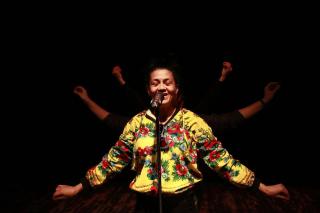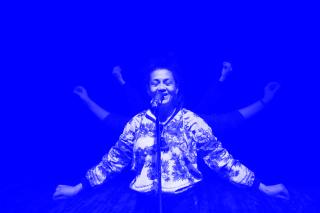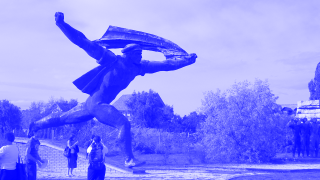Topic
Speaking out Against the Archive
»Who will tell our history?« asks theatre director Alina Șerban 2017 in the play »The Great Shame«. After 1989, Romanian Roma took the stage and began to speak publicly as Roma. They created a variety of texts, plays and works of art. What kind of story do they tell?

Speaking out Against the Archive: Historical Knowledge in Artistic and Cultural Forms of Expression of the Roma Emancipation Movement in Romania after 1989
The Roma are one of the most significant ethnic minorities in Romania. However, it was not until 1990 that they were officially recognised as such by the Romanian state. Many Roma stand up for the human and civil rights of the minority and engage in international dialogue. Some have established associations, NGOs, magazines and publishing houses. Others write poetry, tell stories, perform in theatre productions and create visual art.
A significant and painful theme in these art forms is the history of the Roma, including the history of their enslavement, persecution and marginalisation. What narrative and aesthetic strategies do artists use to tell their stories? Which knowledge traditions do they draw on, and which ones do they challenge?
This project explores how Roma culture in Romania has shaped historical knowledge since 1989. It focuses on the significance of the visual and performing arts, as well as literature, for a group that was long denied its own institutions and organisations. To what extent do artistic forms become sites for the transmission and appropriation of knowledge? Encounters and entanglements are of particular interest here and will be explored using various tools, including participatory research methods.


